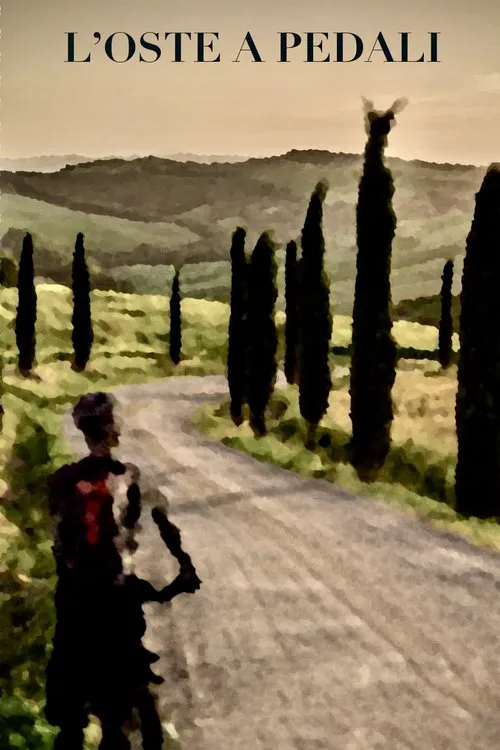L'oste a pedali

Plot
L'oste a pedali tells the story of a unique journey undertaken by an Italian innkeeper named Marco, who is inspired by Pope Francis's "Laudato si'" encyclical to promote eco-friendly living and connect with communities across Italy. The film revolves around Marco's 700km bike ride from his home in Tuscany to Rome, where he hopes to present local products to the Pope, highlighting the importance of sustainable practices. As Marco sets out on his journey, he carries an assortment of goods made from locally sourced and eco-friendly materials. These products range from handcrafted soaps and candles to organic honey and olive oil. His aim is to showcase these products to Pope Francis, who has emphasized the need for individuals and communities to adopt environmentally conscious habits in his influential encyclical. From the beginning of his ride, Marco is met with a mix of reactions from the communities he encounters along the way. Some people are skeptical about the purpose of his journey, while others see it as an opportunity to engage with him and learn about the products he is promoting. As Marco cycles through the towns and villages, he finds himself reconnected with people he thought he knew but whose values and priorities have changed over the years. One such encounter takes place in a small village in Umbria. Marco stops at a local bakery to buy some fresh bread for his journey. He strikes up a conversation with the baker, who reminisces about the old days when people valued local products and community connections more than anything else. The baker expresses admiration for Marco's initiative and asks him to deliver a message to Pope Francis about the importance of promoting eco-friendly practices and preserving traditional crafts. As Marco continues his journey, he faces various challenges that test his physical and mental endurance. The Italian countryside offers breathtaking landscapes and serene scenery, but it also poses difficulties in terms of terrain, weather, and logistics. Marco has to navigate narrow roads, hilly terrain, and unpredictable weather conditions, all while carrying a heavy load of goods. At times, he feels frustrated and tempted to give up, but his determination and the people he meets along the way keep him going. Marco's interactions with the local communities not only inspire and empower him but also provide valuable insights into the importance of living in harmony with nature. He meets a farmer who is using permaculture principles to grow his crops in a sustainable manner. Marco discovers a small workshop where artisans are busy creating handmade pottery using traditional techniques. These experiences further deepen his understanding of the interconnectedness of human well-being, environmental health, and economic prosperity. One of the most poignant moments in the film comes when Marco stops at a small village in Abruzzo, where he meets a group of elderly women who are working together to preserve traditional crafts and promote local products. The women are inspired by Marco's initiative and offer to join him on his journey to Rome. As they ride together, they share stories, sing songs, and reminisce about the past, creating a sense of community and connection that transcends age, occupation, and geography. When Marco finally arrives in Rome after several days of cycling, he is met with a sense of accomplishment and hope. He presents his eco-friendly products to Pope Francis, who is touched by the innkeeper's dedication to promoting sustainability and preserving traditional crafts. The Pope offers words of encouragement and support, acknowledging the importance of individual and collective actions in addressing environmental challenges. L'oste a pedali is a film that not only celebrates the beauty of Italy's countryside but also highlights the relevance of the "Laudato si'" encyclical in today's world. Through Marco's journey, the film shows us the power of community and the importance of living in harmony with nature. As we watch Marco ride through the Italian landscape, we are reminded of the need for us to reexamine our values and priorities, to seek out connections with others, and to promote eco-friendly practices that benefit both individuals and the planet.
Reviews
Recommendations


